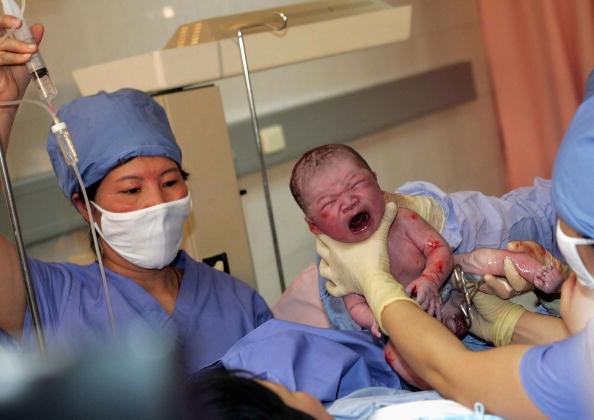As it is, demand for maternity matrons in big Chinese cities is already high as more people become health conscious and the government sets higher standards for raising children. But the demand, as well as salaries, for these women is expected to further rise with the country's two-child policy in place since Jan. 1, 2016.
Beijing and Shanghai's, and China's economic boom resulted in pay for these maternity matrons, or "yuesao" in Chinese, grow four or five times over the past 10 years to an average of $1,500 (10,000 yuan) a month. That's for serving as a midwife, babysitter, dietitian and sometimes yoga instructor for the new mother and the infant, reports Xinhua.
It used to be a one-time role per Chinese family because of China's three-decade-old one-child policy. However, due to the change to a two-child policy, announced in October 2015, to avert the ticking population time bomb in the country with the biggest-population country in the world getting to be dominated by senior citizens, demand for maternity matrons is expected to further balloon beginning the yearend.
Because of the Chinese belief that childbirth stresses the woman's health, especially in the first month after birth, new parents often opt for middle-aged women who herself had experienced giving birth and raising a child to become their maternity matron to avoid damage to the health of the new mother.
The care is beyond delivering the child, but covers physical and mental well-being, including solving possible problems with the mother-in-law.
In the past three years, Beijing women gave birth to 250,000 babies annually, but the number is expected to surge to 300,000 in late 2016, due to the new policy and belief that giving birth to a child born in the Chinese astrological sign of Year of the Monkey - which starts on Feb. 8, is lucky. Across China, about 17 million to 22 million new babies are expected to be born within the next five years.
The impact of the policy shift would also be felt in higher demand for bigger homes, reports The South China Morning Post. As couples prepare to add one more child in big cities like Shanghai and Beijing, an uptick in sale of large three- and four-bedroom homes have been observed.
Veteran real estate agent Cai Shiyang, from Maitian Real Estate in Beijing, points out the impact of the two-child policy is huge on China's residential markets. As a result of the higher demand previously caused by a one-time regional sports event, the average price of a three-bedroom flat in the Asian Games Village jumped to 1 million yuan from 200,000 yuan.



























